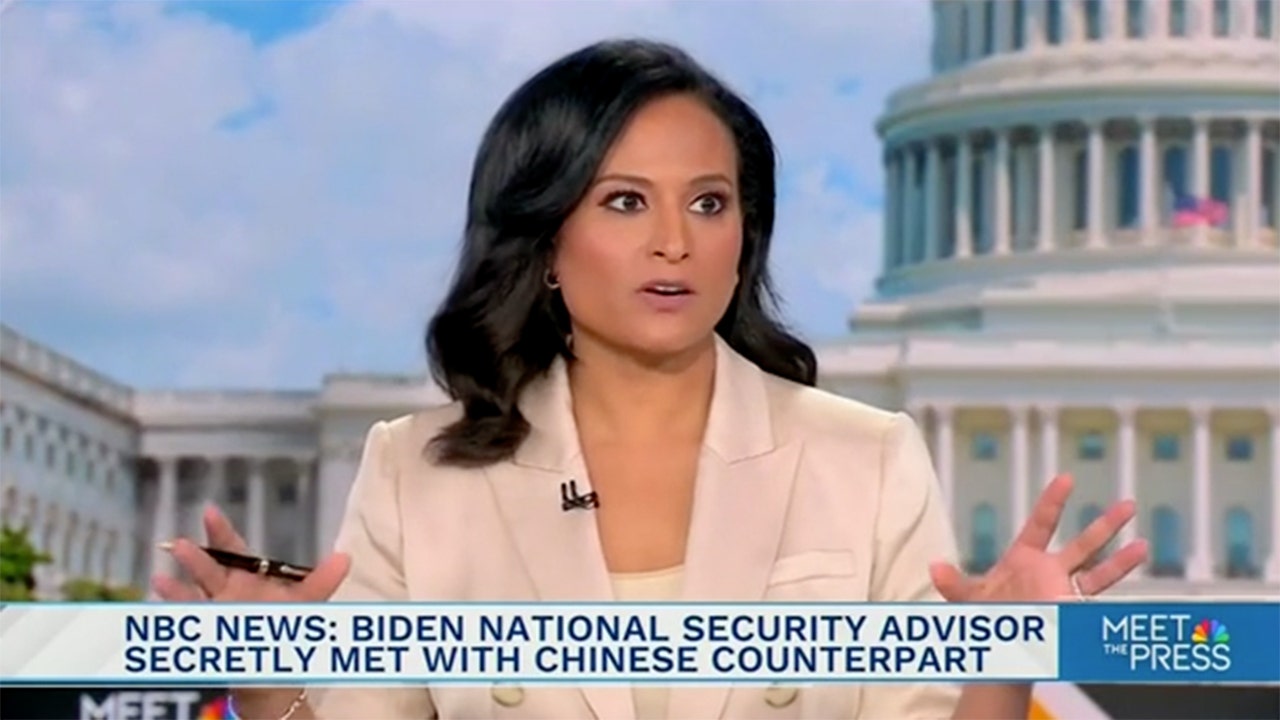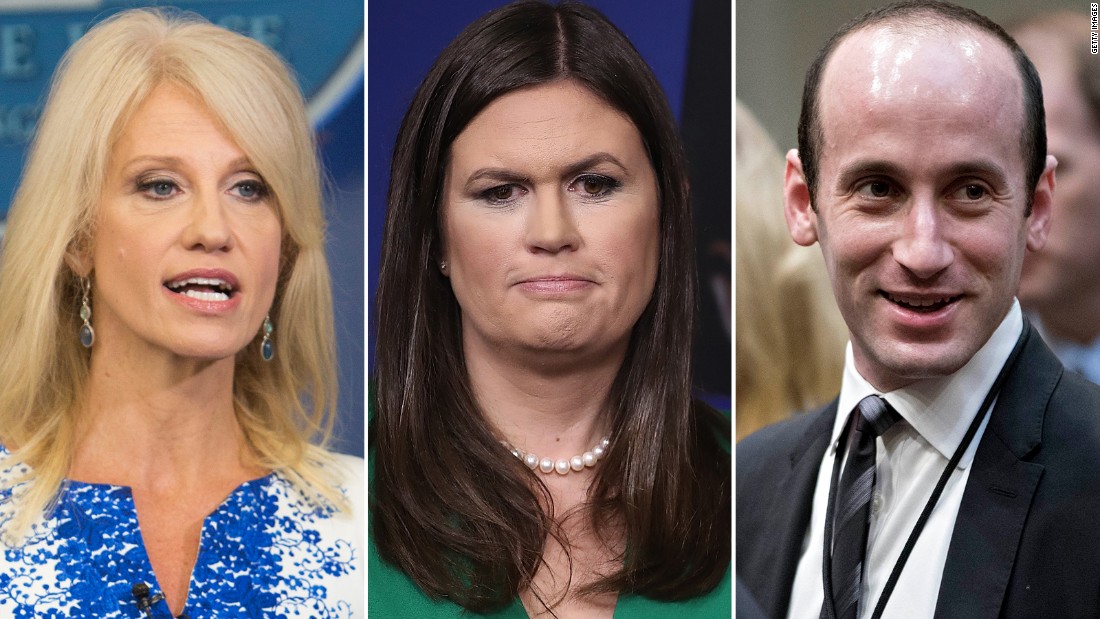In the ever-evolving world of politics and media, confrontations between journalists and political figures often grab headlines. One such instance that caught widespread attention was when an NBC reporter challenged Trump's spokesperson. This moment not only highlighted the intense scrutiny faced by political entities but also underscored the critical role of the press in holding public figures accountable. In this article, we delve into the details of this encounter, its implications, and the broader context surrounding it.
This clash is a testament to the fierce debates that characterize the American political landscape. The interaction between the NBC reporter and Trump's spokesperson exemplifies the dynamic tension between the administration's messaging and the media's role in questioning and analyzing these narratives.
As we explore this event, we will uncover the background, the key players involved, and the impact of such confrontations on public discourse. By examining this incident, we aim to provide a comprehensive understanding of the relationship between the press and political figures in the contemporary era.
Read also:San Ramon Hotels
Table of Contents
- Biography of Key Figures
- Background of the Confrontation
- Political Context
- Details of the Confrontation
- Impact on Public Perception
- The Role of Media
- Ethical Considerations
- Public Reaction
- Future Implications
- Conclusion
Biography of Key Figures
The confrontation between the NBC reporter and Trump's spokesperson involves two prominent figures in the political and media spheres. Below is a brief biography of each:
Biography of NBC Reporter
| Name | Insert NBC Reporter's Name |
|---|---|
| Position | NBC Correspondent |
| Years of Experience | Insert Years |
| Notable Achievements | Insert Achievements |
Biography of Trump Spokesperson
| Name | Insert Trump Spokesperson's Name |
|---|---|
| Position | White House Press Secretary |
| Years of Experience | Insert Years |
| Notable Achievements | Insert Achievements |
Background of the Confrontation
The confrontation between the NBC reporter and Trump's spokesperson occurred during a press briefing, a setting where questions and answers often lead to heated exchanges. This particular event was fueled by the ongoing tension between the Trump administration and the media.
At the heart of the matter was a series of allegations and counter-allegations regarding the administration's policies and their portrayal in the media. The NBC reporter's challenge was seen as a direct attempt to clarify and confront the administration's stance on certain issues.
Understanding the historical context of media relations during the Trump presidency is crucial in grasping the significance of this confrontation. The administration's frequent criticism of the press as "fake news" added layers of complexity to the interaction.
Political Context
The political climate during the Trump presidency was marked by sharp divisions and polarized views. This context influenced the nature of interactions between the press and political figures, making confrontations like the one between the NBC reporter and Trump's spokesperson more intense.
Key factors contributing to this environment include:
Read also:Tom Keen Black List
- Heightened political rhetoric
- Increased media scrutiny
- Public skepticism towards mainstream media
These elements combined to create a backdrop where such confrontations were not only expected but almost inevitable.
Details of the Confrontation
The specific details of the confrontation provide insight into the nature of the exchange. The NBC reporter's questions were direct and challenging, focusing on specific policies and statements made by the administration.
Trump's spokesperson, in response, defended the administration's positions, often employing rhetorical strategies to deflect or counter the reporter's queries. The exchange was characterized by a back-and-forth dynamic, highlighting the adversarial relationship between the press and the administration.
Notable moments from the confrontation include specific instances where the NBC reporter pressed for clarification, and the spokesperson's responses were scrutinized for accuracy and transparency.
Impact on Public Perception
The confrontation had a significant impact on public perception, influencing how the public viewed both the administration and the media. Viewers and readers were divided in their opinions, with some supporting the NBC reporter's efforts to hold the administration accountable, while others criticized the press for perceived bias.
This division reflects broader societal trends regarding trust in media and political institutions. The confrontation became a focal point for discussions about the role of journalism in democracy and the responsibilities of political figures to engage transparently with the press.
The Role of Media
The media plays a crucial role in shaping public discourse and informing citizens about the actions and policies of their leaders. In this context, the NBC reporter's challenge of Trump's spokesperson exemplifies the media's function as a watchdog.
Key aspects of the media's role include:
- Providing information and analysis
- Holding public figures accountable
- Fostering informed public debate
These responsibilities are vital in maintaining a healthy democracy and ensuring that citizens are well-informed about the issues that affect their lives.
Ethical Considerations
From an ethical standpoint, the confrontation raises important questions about the conduct of both the press and political figures. Journalists must adhere to ethical standards that prioritize accuracy, fairness, and transparency in their reporting.
At the same time, political figures have a responsibility to engage with the press in a manner that promotes understanding and clarity. Ethical considerations in this context involve balancing the need for robust questioning with respect for differing viewpoints and the importance of maintaining civility in public discourse.
Public Reaction
The public's reaction to the confrontation was varied, reflecting the diverse perspectives within society. Social media platforms were ablaze with comments and opinions, with users expressing their views on both sides of the issue.
Some praised the NBC reporter for standing up to the administration and asking tough questions, while others criticized the press for what they perceived as an unfair attack on political figures. This diversity of opinion underscores the complexity of public attitudes towards the media and politics.
Future Implications
The implications of this confrontation extend beyond the immediate event, influencing future interactions between the press and political figures. It sets a precedent for how journalists and spokespersons engage with each other, potentially shaping the tone and nature of future press briefings.
Looking ahead, the lessons learned from this incident can inform strategies for improving communication and understanding between the media and political entities. By fostering a more collaborative and respectful dialogue, both sides can contribute to a more informed and engaged citizenry.
Conclusion
In conclusion, the confrontation between the NBC reporter and Trump's spokesperson represents a pivotal moment in the ongoing dialogue between the press and political figures. It highlights the critical role of journalism in holding leaders accountable and underscores the importance of ethical conduct in public discourse.
We invite readers to engage with this content by sharing their thoughts and opinions in the comments section below. Additionally, we encourage you to explore other articles on our site that delve into related topics, providing further insights into the complex world of politics and media.
Thank you for reading, and we hope you found this article informative and thought-provoking.


